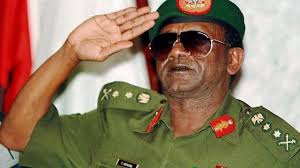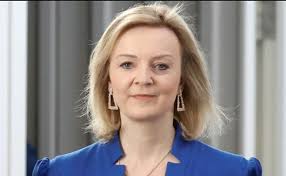Fatherland seeks “Orange Union” for multi ethnic Nigeria.

By Samuel Ogunsona
Nigeria’s notable international presure group, The Fatherland has deviced the Orange Union as a way out of Nigeria’s political and economic logjam.
From independence, Nigeria has never been able to resolve the festering National Question which on one occasion led the country into a bloody war.
Events in the country in the past few years have deepened ethnic suspicion made worse by a politically bankrupt elite, corruption, growing religious intolerance and violent extremism.
In a statement made available to Irohinoodua, the Fatherland described The Orange Union as a New Road to the Promised Land for Nigerians
On why the Fatherland Group Initiatived the concept, the group said the civilisational concept of the Orange Union is inspired by Natures gift to mankind by way of the orange citrus fruit.
“As with the fruit, it is a concept whereby humanity enjoys the peaceful harmony of a union within which the separate segments are distinctly and uniquely covered by a soft internal border, while the shared cover is the much firmer peeling acting as the external border to the rest of the world.”
The group is led by a London based lawyer, Mr Dele Ogun
The group said in the Orange Union proposed for Nigeria, each segment represents a unique, historic, ethnic group/nation, maintaining its fullness of identity, self-determination and integrity, with the added benefit of a jointly negotiated common ground of interest deemed as mutually nourishing and protective.
Fatherland said The old road has demonstrably failed.
“That road, of political union towards One Nigeria, was explained by one of its principal architects, Sir Peter Smithers (Parliamentary Private Secretary to the Minister of State and the Secretary of State in the Colonial Office from 1952-59 in the run up to Nigerias independence. He was also the Secretary General to the Council of Europe from 1964-1969) as follows:
“Sir, During the negotiations for the independence of Nigeria the view of the Secretary of State at that time, with which I agreed, was that in Nigeria we should attempt to put together a large and powerful state with ample material resources, which would play a leading part in the affairs of the continent and the world. This was attractive but it involved forcing several different ethnic and cultural groups into a single political structure.”
Fatherland noted that the negotiations were complex and very difficult, the chief problem as I remember relating, significantly, to the control of the police and the military.”
Fatherland said in the retrospect of 40 years it is clear that this was a grave mistake which has cost many lives and will probably continue to do so.
“It would have been better to establish several smaller states in a free-trade area.
“In exculpation it must be said that we did not then have the examples of the collapse of Yugoslavia and of the Soviet Union before our eyes. It should now be clear for all but the wilfully blind to see that it is extremely dangerous to force diverse racial and social entities into a single rigid structure such as that which is being built upon the foundation of the Maastricht treaty. Recent history suggests that it would be best to complete the development of the Common Market and to call a halt to political integration in Europe.”
Ouoting the Times, July 15, 1998, it said
the old road, passing through successive territorial amalgamations, from 1900, and via a variety of governance models, since 1946, – ranging from limited franchise to universal franchise, Parliamentary to Presidential, interspersed with periods of military rule and civil war – entailed squeezing the more than 371 pre-existing ethnic groups and nations into becoming one people, in a winner-takes-all political arrangement.
“This exercise in futility reached its nadir with the 2023 General Elections, with allegations of unprecedented levels of electoral malpractice including, most especially, by the Independent National Electoral Commission after spectacular assurances of full transparency in the vote counting process. The new confident taunt of the victors for the losers, in the win-at-all-costs game, is Go-to-court.”
Why still have a Union at all?
The evidence suggests that most Nigerians want to stay together in some form of union provided it can work in their interests. What they clearly do not want is a union that is held together by force of arms only, with its attendant high cost in human lives and aspirations. Simply put, like all civilised people, the want a consensual union that is held together by shared interests


